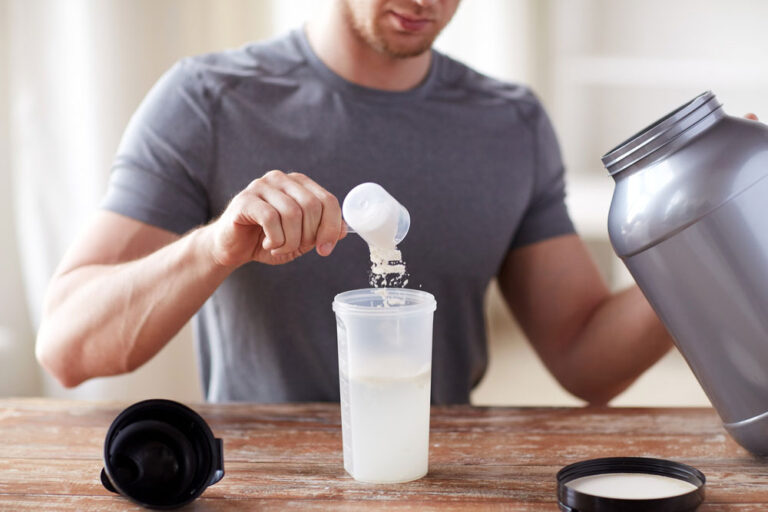Herpes simplex virus (HSV) commonly referred to as herpes is a type of STD caused by a virus. It can be spread orally or by having sexual contact. Sexual contact is the most common form of herpes transmission.
Now that you know herpes can spread orally, you might be thinking if you can get herpes from sharing a drink or a glass or straw. In fact, a lot of people wonder and keep asking the question “can you get herpes from sharing a drink?”
To be able to completely answer that question, you will need to first get a very good understanding of how herpes is transmitted from person to person. Let us, therefore, take a look at what herpes is, how it is transmitted, and any relevant information about herpes that will help us fully answer the question above.
What is herpes?
Herpes simplex virus (HSV) commonly referred to as herpes is a type of STD caused by a virus. There are two main strains of the virus, HSV-1 and HSV-2. Both of these two strains of the virus can be transmitted sexually.
HSV-1 primarily causes oral herpes, which is responsible for cold sores. However, HSV-1 can also be transmitted from one person’s mouth to another person’s genitals during oral sex. When this happens, HSV-1 can cause genital herpes.
HSV-2 is responsible for genital herpes. The most common symptom of herpes is blistery sores. In the case of genital herpes, these sores develop on or around the genitals. In oral herpes, they develop on or around the mouth.
Herpes sores generally crust over and heal within a few weeks. The first outbreak is usually the most painful. Outbreaks typically become less painful and frequent over time.
Both these types of herpes are highly contagious.
If a pregnant woman has herpes, she can potentially pass it to her fetus in the womb or to her newborn infant during childbirth. This so-called congenital herpes can be very dangerous to newborns. That’s why it’s beneficial for pregnant women to become aware of their HSV status.
There is no known cure for herpes yet. However, there are some antivirals available that can be used in managing it and preventing the spread, especially during an outbreak.
What causes herpes?
Herpes is caused by the herpes simplex virus which is very contagious. It can be transmitted from one person to another through direct contact. Children can also contract HSV-1 from an adult who has an infection. The virus spreads more quickly during an outbreak.
What are the symptoms of herpes?
Herpes has a lot of symptoms some of which include
- blistering sores in the mouth
- blistering sores on the genitals
- itching
- pain during urination (for genital herpes).
Herpes also has symptoms that are very similar to flu. These symptoms include
- fever
- swollen lymph nodes
- headaches
- reduced appetite
Herpes can also spread to the eyes resulting in a condition known as keratitis. Symptoms of keratitis include
- eye pain
- gritty sensation in the eye
- discharge from the eye
How is herpes transmitted?
Herpes is mostly transmitted through direct physical contact. This includes oral contact, anal, genital, and sex without protection. Sex toys can also transmit herpes. If your partner has herpes, touching the infected area with your fingers can result in the virus spreading to you.
Herpes is the most contagious when you are not practicing safe sex. Using protection and avoiding direct skin-to-skin contact with an infected person can prevent you from getting infected.
Non-sexual activities can also transmit herpes
Herpes can be transmitted through handshakes (herpetic whitlow, also known as herpes on hands) can cause painful infectious blisters on the fingers.
It can also be transmitted through birth. If the mother has an active case of the herpes virus around her vagina during birth, she can unknowingly transfer the herpes virus to her newborn baby as the baby passes through the birth canal.
Also, the chances of getting herpes from toilet seats, bedding, or swimming pools, or from sharing objects such as silverware, soap, or towels are very low, but it is possible.
Can you get herpes from sharing a drink?
Now that you understand what herpes is and how it is transmitted from person to person, let’s tackle the main question on board “can you get herpes from sharing a drink?”
The chances of you getting herpes from sharing a drink with an infected person are very low and almost nonexistent. However, it has been found that the herpes virus spreads through saliva and for that matter can be spread through sharing a drink.
Even though it has been found that the herpes virus can live outside the body (on various surfaces) for some hours up to a few weeks, it hasn’t been found to be significantly spread by drinking from the same glass or bottle.
The virus is actively spread in the presence of sores but it has also been found that even in the absence of open sores, the virus can also be actively transmitted. The risk of transmission increases very much during outbreaks.
So, if someone who has herpes especially oral herpes drinks and you are to drink after him/her using the same glass or straw, there is only a small chance that you will also catch the virus.
Due to the nature of the virus, sharing a drink will not pose a danger to your health. The chances of this means of transmission are quite low as mentioned earlier but you cannot rule out the possibility. As such, it is always advisable to avoid sharing glasses, dishware, utensils from someone who has herpes.
How is herpes diagnosed?
Herpes is generally diagnosed with a physical exam. During the physical examination performed by your doctor, your body will be checked for sores.
HSV testing, also known as herpes culture is another way to diagnose herpes. It will confirm the diagnosis if you have sores on your genitals. This test involves the use of a swab to take a sample of fluid from the sore which is then sent to the lab for testing.
Blood tests for antibodies to HSV-1 and HSV-2 can also help diagnose these infections. This is especially helpful when there are no sores present.
How long can herpes live outside the body?
The amount of time that the herpes virus can live outside of the body can vary. It’s been estimated that it can be anywhere from a few hours up to a week. Once the virus dies, there’s no risk of you being infected, even if you share a drink or food with someone that has herpes.
Facts that you need to know about herpes
There is a lot of false information being spread about the herpes infection in the form of myths. Here are some facts that are worth knowing about herpes infection:
- You don’t necessarily need open sores for the virus to spread. The herpes virus can equally spread without active sores.
- You may have the virus without showing symptoms. This means that the absence of symptoms in an individual doesn’t rule out the fact that they may have the virus and therefore can transmit it to you. Also, since there is no permanent cure for herpes till now, once you get the virus, it is likely to be in you for life.
- It is also possible to contract the herpes infection through any type of sex (oral or anal) even if no fluids are exchanged.
- Another interesting one is that the herpes infection can also be transmitted through kissing even if it is the lightest of kisses without the involvement of the tongue.
To know more about sexually transmitted diseases that can be transmitted through kissing, check out this post, “Can I get STDs through kissing?”.
How is herpes treated?
Currently, there is no cure for herpes. Some treatments focus on limiting the outbreaks of herpes and getting rid of the sores. For example, Luminance Red is a cold sore treatment that uses high-powered light technology to shorten the healing time and reduce the number of herpes blisters.
It is also possible for the sores to go away on their own without treatment. Your doctor can give you medication to help reduce the risk of transmitting the virus to others. Medications like acyclovir, famciclovir, valacyclovir help to lower the intensity and frequency of outbreaks.
How to prevent herpes?
Since there is no cure for herpes measures can be taken to avoid contracting the virus or to prevent transmitting the virus to another person.
If you are experiencing an outbreak of HSV-1, consider taking a few preventive steps:
- Try to avoid direct physical contact with other people.
- Don’t share any items that can pass the virus around, such as cups, towels, silverware, clothing, makeup, or lip balm.
- Don’t participate in oral sex, kissing, or any other type of sexual activity during an outbreak.
- Wash your hands thoroughly and apply medication with cotton swabs to reduce contact with sores.
People with HSV-2 should avoid any type of sexual activity with other people during an outbreak.
The takeaway from this article
Herpes is an STD that primarily spreads through direct skin-to-skin contact. The possibility of getting herpes from sharing a drink with an infected person is virtually nonexistent but very possible since the virus can also be spread through saliva.
You, therefore, should try to protect yourself since there is no cure for herpes by not sharing drinks with people with herpes infection.







Leave a Comment